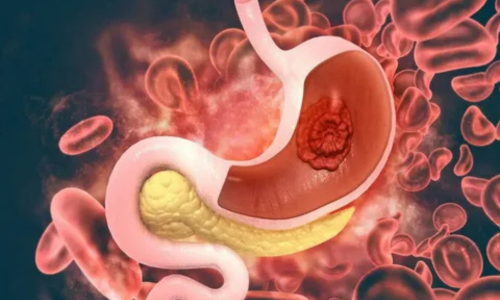
What is Stomach Cancer?
Stomach cancer is a type of cancer that begins in the lining of the stomach and can spread to other parts of the body if not detected early. It is one of the most common cancers worldwide. Despite medical advancements, early diagnosis and effective treatment remain significant challenges.
Types of Stomach Cancer
- Adenocarcinoma: The most common type, originating in the glandular cells lining the stomach.
- Gastric Lymphoma: A rare type found in the upper part of the stomach.
- Stomach Lymphoma: Develops in the lymphatic system cells of the stomach.
- Gastrointestinal Stromal Tumor (GIST): A rare cancer originating in the supportive tissue cells of the stomach.
Causes and Risk Factors for Stomach Cancer
1. Age and Gender
- The risk increases with age.
- Men are more prone than women, likely due to behavioral and dietary differences.
2. Genetics
- A family history of stomach cancer raises the likelihood of developing the disease due to genetic mutations.
3. Environmental Factors
- Long-term smoking.
- Exposure to harmful chemicals.
4. Diet
- Excessive consumption of salty foods.
- Low intake of fruits and vegetables.
5. Helicobacter pylori Infection
- This bacterial infection significantly increases the risk of stomach cancer.
Symptoms of Stomach Cancer
Stomach cancer is often called the “silent killer” because its symptoms are not apparent in the early stages. Common symptoms include:
- Persistent upper abdominal pain.
- Digestive issues, such as chronic acidity, frequent belching, constipation, or diarrhea.
- Loss of appetite and unexplained weight loss.
- Continuous vomiting, sometimes with blood.
- Abdominal bloating.
- Blood in the stool.
- Extreme fatigue and weakness.
- Swollen lymph nodes in the neck.
Diagnosing Stomach Cancer
The diagnosis process involves several steps:
- Medical History: Assessing symptoms and hereditary risk factors.
- Imaging Tests:
- X-rays.
- Ultrasound.
- MRI or CT scans.
- Upper Endoscopy: A thin tube with a camera is used to examine the stomach lining and collect tissue samples.
- Blood Tests: To detect chemical markers that may indicate stomach cancer.
Treatment Options for Stomach Cancer
1. Surgery
- Removing part or all of the stomach in early-stage cases.
2. Radiation Therapy
- Reducing tumor size before or after surgery.
3. Chemotherapy
- Used alone or combined with surgery and radiation to kill cancer cells.
4. Targeted Therapy
- Drugs that specifically target cancer cells without harming healthy tissues.
Conclusion
Early detection of stomach cancer is crucial for improving the chances of treatment and recovery. If you experience unusual symptoms or have known risk factors, consult a doctor without delay. Maintaining a healthy diet and undergoing regular screenings can be effective in preventing this disease.
Leave a Reply